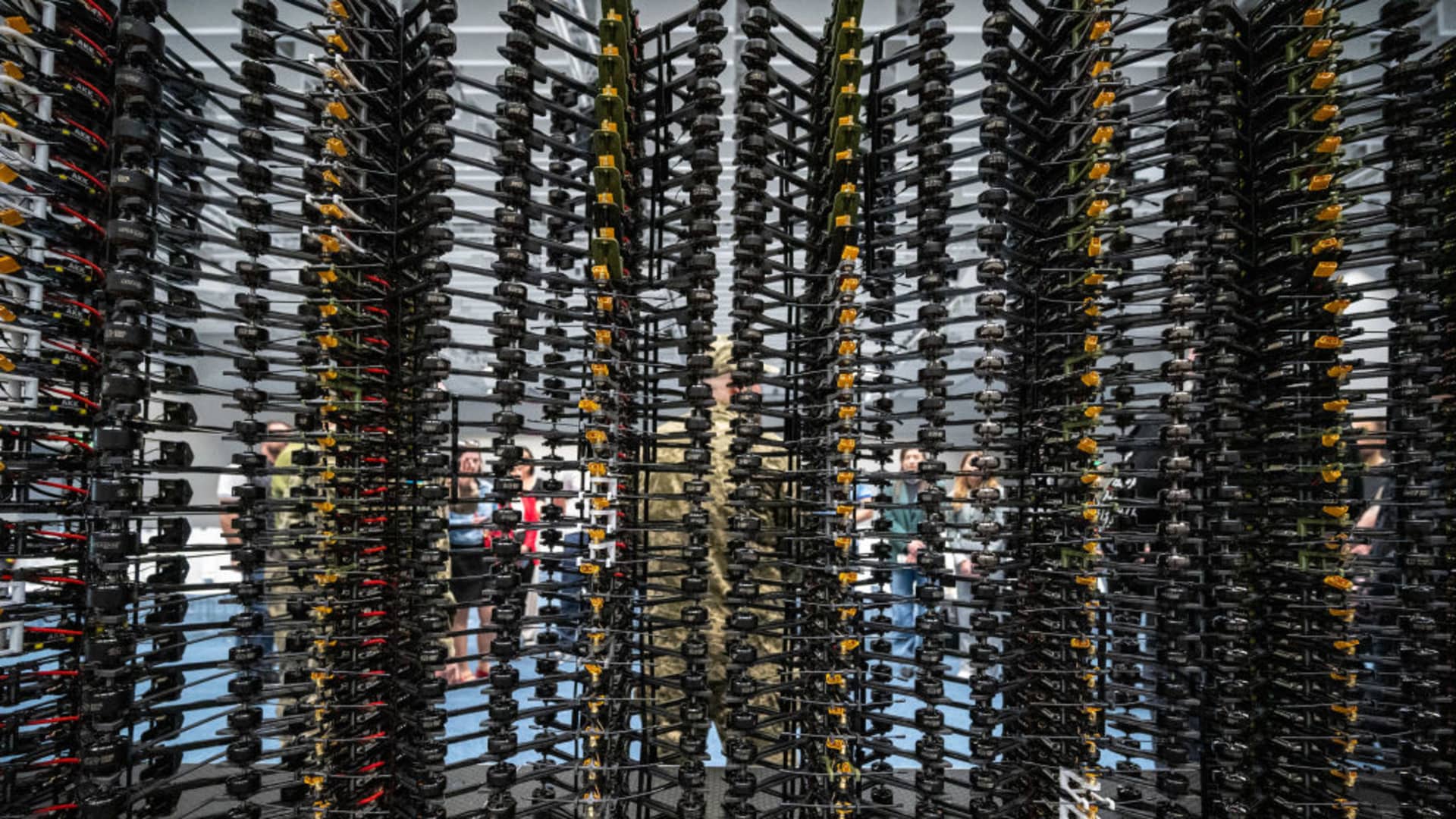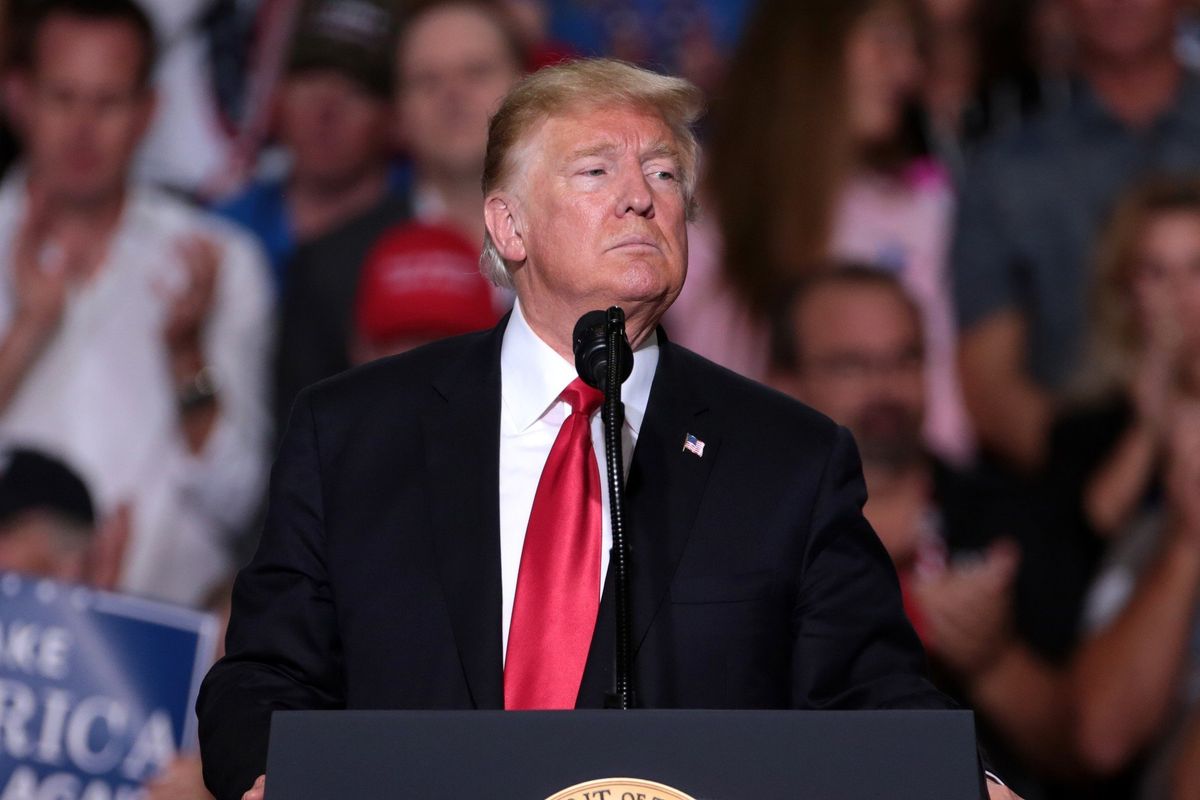Drones in possession of the Armed Forces of Ukraine on May 2, 2024 in Lviv, Ukraine. “Just open any newspaper, and switch on any TV channel. Look at what’s happening in Ukraine. Look at what’s happening in the Middle East. Drones have changed modern warfare, public safety, and homeland security forever,” Dedrone CEO Aaditya Devarakonda told CNBC on May 6, 2024, the day his startup was acquired by public safety company Axon.
Global Images Ukraine | Global Images Ukraine | Getty Images
Public safety technology company Axon announced Monday that it is acquiring drone defense startup Dedrone.
Dedrone, which serves the military, government, and commercial customers, from airports to stadiums and high-profile events, has become a major player in what’s known as smart air security. Its technology already covers half of the U.S. population in 40 cities, 30 airports, 50 stadiums and 50 correctional facilities. Its work extends to 36 countries, nine U.S. federal agencies and more than 35 law enforcement agencies.
Founded in 2014, Dedrone has been venture funded with $127 million in total from existing investors, including Axon, which co-led a round of financing with VC firms in July 2022, and has had a seat on the Dedrone board.
The company ranked No. 23 on last year’s CNBC Disruptor 50 list.
Terms of the deal, expected to close in the second half of 2024, were not disclosed.
Axon, which is most famous for the Taser, also offers body cameras, in-car cameras, and a cloud-based digital evidence management platform — for assets including video from Axon body cameras. Its customers include first responders at the international, federal, state and local law enforcement level, fire departments, correctional facilities and the justice sector, in addition to a commercial business.
Axon CEO Rick Smith, who founded the public safety company three decades ago, told CNBC’s Morgan Brennan in an exclusive interview that what Dedrone has done in protection of public airspace matches his company’s mission. “And you can see what’s happening around the world. Drones carry great promise, but also great peril. And so by combining forces, we’re able to bring our scale together with Dedrone’s ingenuity and innovation so that we can protect more lives in more places,” Smith said.
Axon, which has a market valuation over $24 billion, has seen its shares rise from as low as $50 in 2019 to over $300 today. Axon increased its full-year revenue guidance in its latest earnings, released concurrently with the acquisition announcement on Monday afternoon, to nearly $2 billion, after a first quarter that posted 34% sales growth.
Aaditya Devarakonda, previously a technology investment banker and a Dedrone adviser, and who has been CEO of Dedrone since 2020, pointed to the company’s growing footprint in industries from government to utilities, critical infrastructure, event venues, airports, and correctional facilities as being a good match for Axon’s ecosystem of connected devices and software.
“We are deployed in 800 different locations,” Devarakonda told Brennan. “We keep the bad drones out. … Just open any newspaper, and switch on any TV channel. Look at what’s happening in Ukraine. Look at what’s happening in the Middle East. Drones have changed modern warfare, public safety, and homeland security forever. … Look, every airport needs it, every prison needs it.”
Dedrone systems are at work in Ukraine.
Dedrone’s primary product, Dedrone Tracker, provided security for the 2022 FIFA World Cup in Qatar, protecting 900 square kilometers of airspace and 44 key sites. It has also worked with Formula One Grand Prix. The tracker can detect some 200 drone models from 65 manufacturers, trigger alarms, and analyze data from incidents to create forensic reports.
It introduced a first responder drone being field-tested by police departments, and debuted DedroneTactical, a plug-and-play, transportable set-up radar with AI-driven detection equipment. Chief among its new products is DedroneCityWide, which acts like an air traffic control system for drones and was recognized by Time as a best invention of 2023.
In the past year, Dedrone technology was singled out as the only counter-drone approved for use in anti-terrorism by the Department of Homeland Security.
Smith estimates that Dedrone will increase Axon’s total available market by over 20%. In a world where drones that consumers can fundamentally buy at a Best Buy or online today can, with minor repurposing and plans, be transformed from consumer toys into “things that can be quite dangerous,” Smith said, Dedrone is in a space where society will need help figuring out both the risks and the “huge area of growth” for the public safety sector to have its own drones.
Today, getting a drone on the scene well before a police car can get there through traffic means having a police officer standing on a rooftop. “You’re looking into the distance, trying to see a drone. We know that a superhuman array of sensors can track drones and keep the airspace much safer than a person standing on a rooftop,” Smith said.




















Discussion about this post